Grant from the Federal Ministry of Education for Stefan Hawelka
Three-year doctoral programme as part of the federal initiative ‘Educational innovation needs educational research’ (Bildungsinnovation braucht Bildungsforschung)
2025-11-05
The Centre for Cognitive Neuroscience (CCNS) aims to advance our understanding of the interplay between neural and cognitive processes. This interdisciplinary effort currently involves ~60 researchers from a variety of disciplines including psychology, biology, linguistics, sports and exercise science, law, neurology, and psychiatry. The close collaboration between the University and the Christian Doppler University Hospital facilitates the translational research needed to address today's pressing health and societal challenges.
Grant from the Federal Ministry of Education for Stefan Hawelka
Three-year doctoral programme as part of the federal initiative ‘Educational innovation needs educational research’ (Bildungsinnovation braucht Bildungsforschung)
2025-11-05
Constantinus Preis for Leo-Lesetest
The Leo-Lesetest - co-developed by Stefan Hawelka - reached the 1. place in the category Standardsoftware & Cloudservices.
2025-07-02
FWF grant for Manuel Schabus & opportunity to participate
New FWF project at the Laboratory for Sleep and Consciousness Research & New sleep study on digital insomnia therapy - "Endlich wieder besser schlafen?".
2025-02-13
This research cluster investigates predictive information processing and its association to different conscious experiences using MEG, EEG, and fMRI measurements. We look at auditory predictions and how those relate to tinnitus and other maladaptive phenomena. We also explore semantic predictions under different levels of consciousness and levels of skill as well as sensory predictive processing and its relationship to decision making and abnormalities thereof.
This research cluster investigates the implementation of cognitive processes and their modulation by brain disorders. For instance, we investigate commonalities across disorders, viewing them along dimensions such as brain structure, function, and enocrinology, rather than distinct categories. Our approaches include characterizing the brain's connectivity patterns as a defining measure of brain function beyond topographical aspects. With such approaches, we aim to develop precise biomarkers for clinical diagnosis, treatment planning, and patient monitoring.
This research cluster addresses, from a legal perspective, the intersection between current initiatives on Open Science, Open Data and the FAIR principles on the one hand, and the issue of data protection on the other. Questions about the privileged status of and public interest in neuroscience data will be explored. This will further our understanding of the legal basis for sharing and reanalysis of neuroscience data.
This research cluster explores the interplay between consciousness and cognition. On the one hand, we study how information processing changes in states of altered consciousness such as natural sleep, and on the other hand we focus on cognitive processing in newborns and young infants. The choice of the method given the study topic thereby is usually (high-density) EEG and/or MEG.
The CCNS provides its researchers with a range of state-of-the-art neuroscience methods. Our method units pool expertise and support for all CCNS members to easily access and implement all methods for their studies.
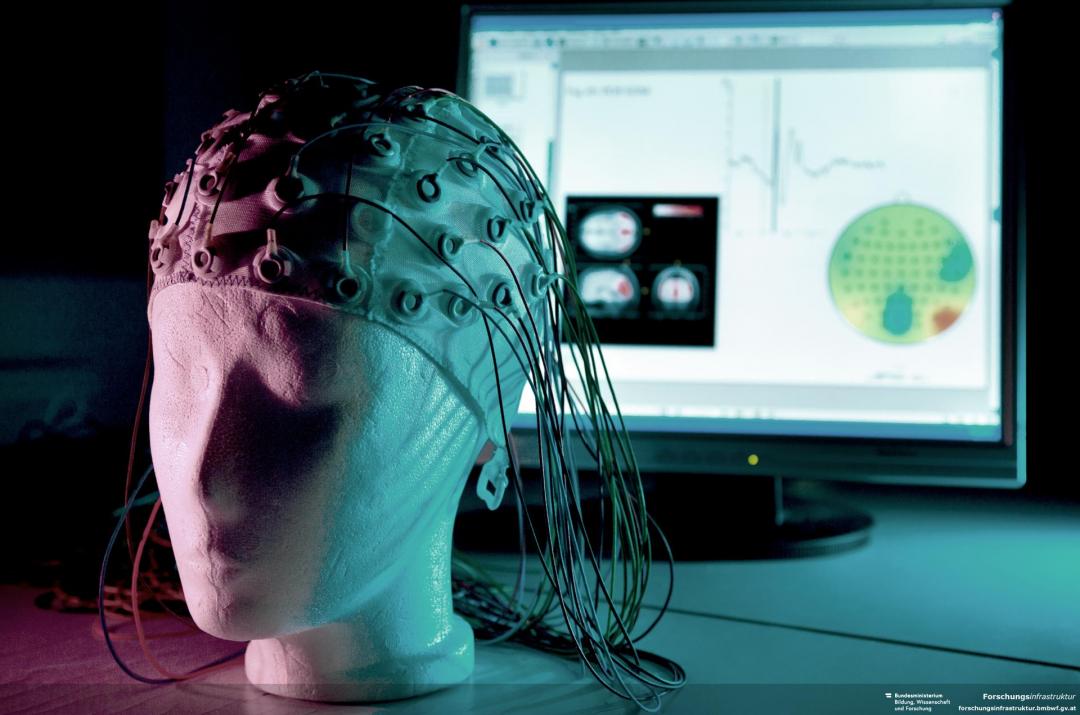
We measure electrical brain, muscle and heart activity with very high time precision. These recordings are possible across all ages starting with newborns, as well as with patients including people who cannot communicate, such as post-comatose patients.
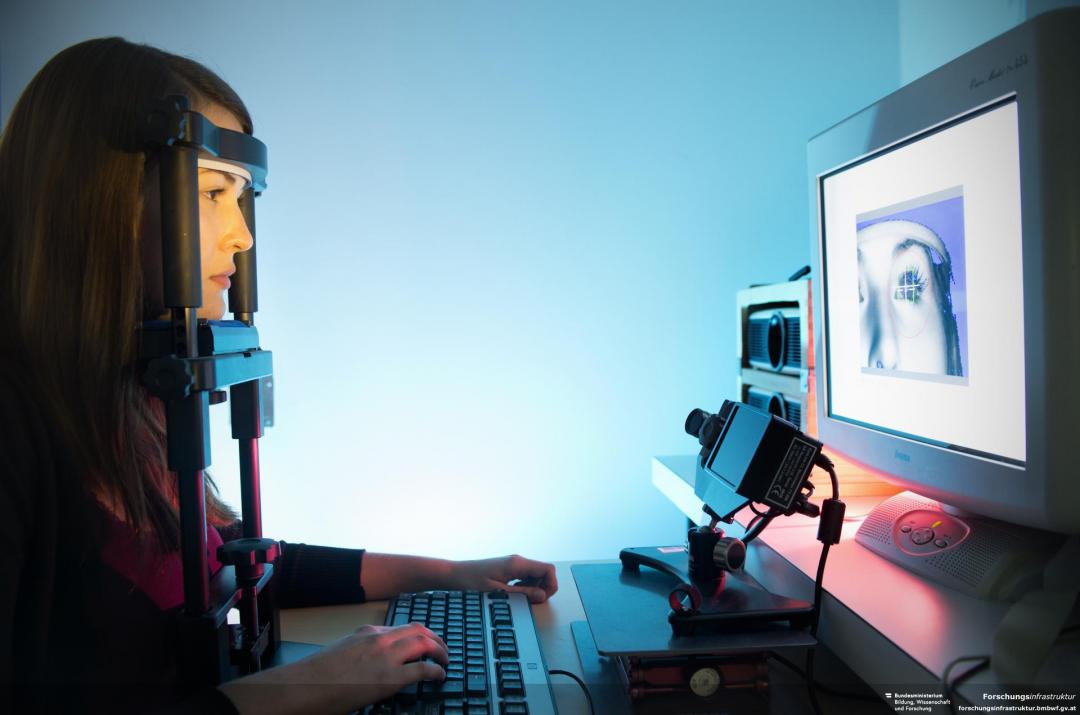
This unit is a starting point for many studies that further probe cognition with the methods provided by the other units, such as EEG, MEG, fMRI, tACS/tDCS, and TMS. We can co-register eye movement and behavioral responses with fMRI and EEG, which allows us to exploit the strengths of the different methods all at once. Our facilities include eye movement measurement in VR, voice recording, and multi-subject testing.
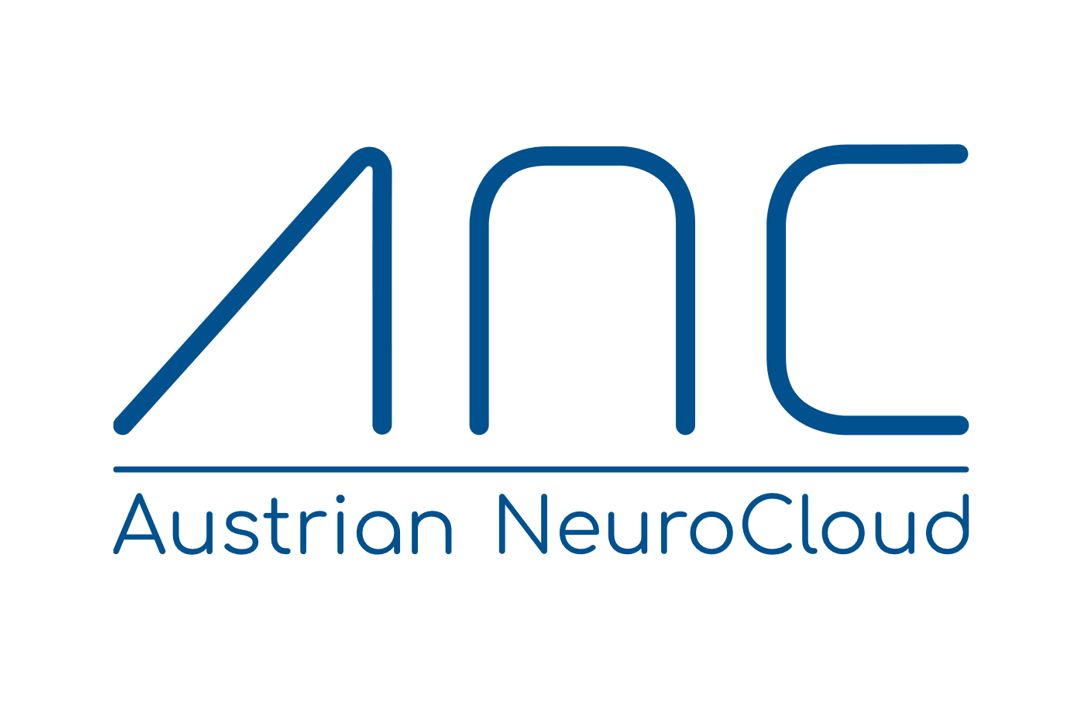
We aim to integrate Austria’s large-scale facilities in the field of cognitive neuroscience by establishing a centralized hub for standardised storage, management and analysis of research data. Modern data processing workflows and reproducible analysis pipelines will be integrated into a high-performance computing environment optimized for data-intensive use cases. The Austrian NeuroCloud is committed to the EU Open Science policy and supporting the European Open Science Cloud.
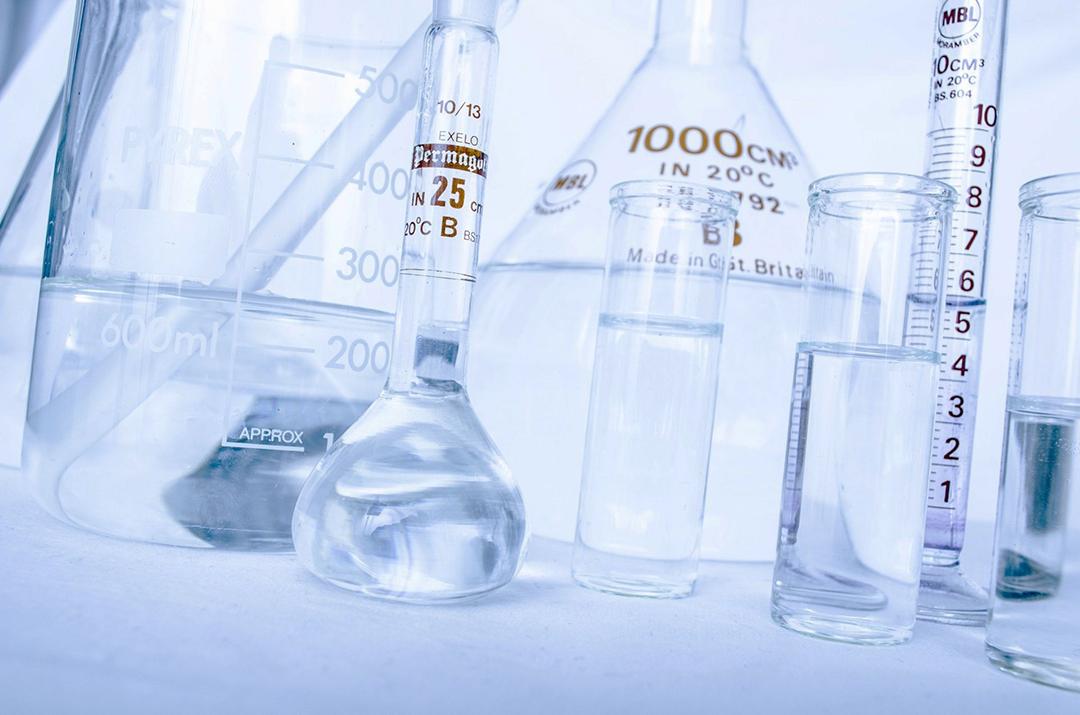
We provide fully equipped hormone analysis to diagnose saliva and urine for homrones such as steroid hormones, oxytocin, and melatonin.Moreover, we provide expertise for the genetic analysis of hormone receptor genes.
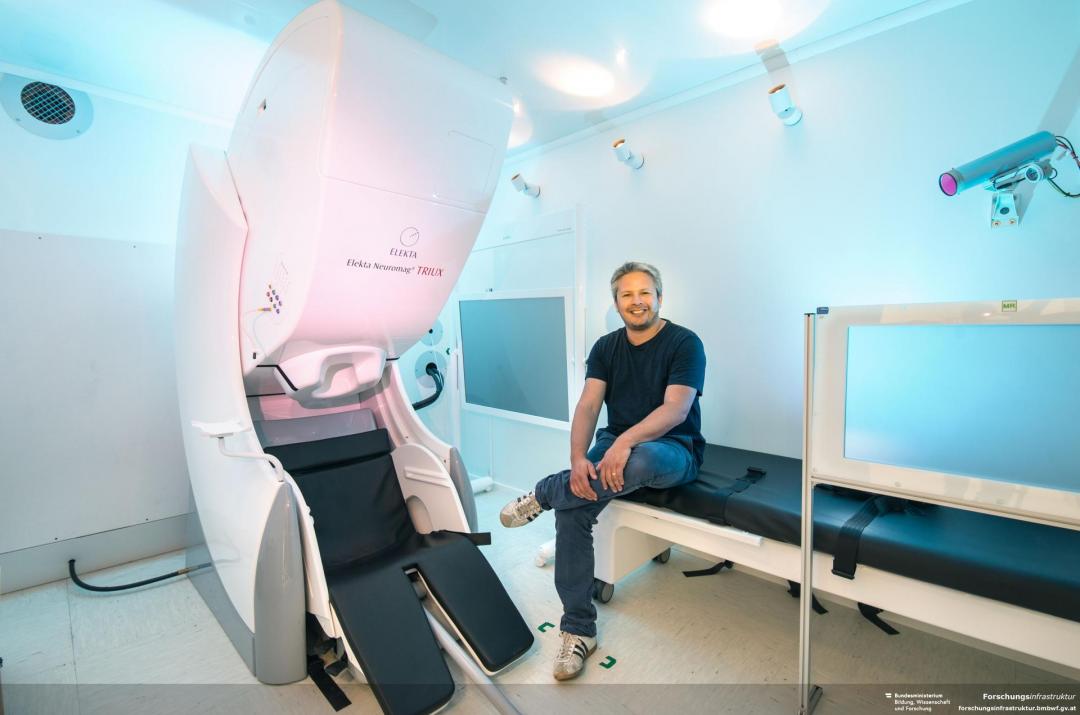
We employ a state-of-the-art whole head scanner that samples the brain magnetic fields with very high time resolution, optionally integrated with EEG. Ancillary measurements include ECG, EMG, EOG, and binocular eye tracking. Auditory, somatosensory, and high-frequency visual stimulation devices complement the equipment, alongside with an MEG compatible transcranial electrical stimulation system.
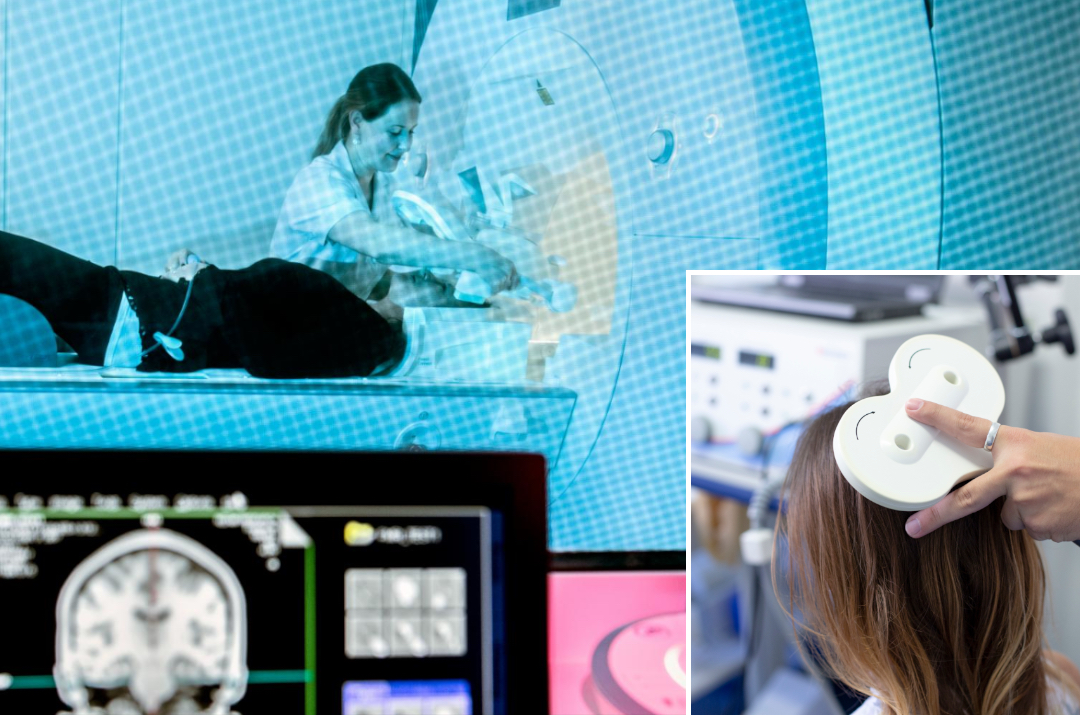
We provide a 3 Tesla MRI scanner to record high resolution images of brain structure and blood flow changes related to neurons' activity during mental or motor tasks, during visual, auditory, and tactile stimulation, or when participants simply rest. Our setup can simultaneously record eye movements, heart rate, and other physiological parameters. We also provide transcranial magnetic stimulation (TMS) to safely manipulate cognitive processing through brain stimulation.
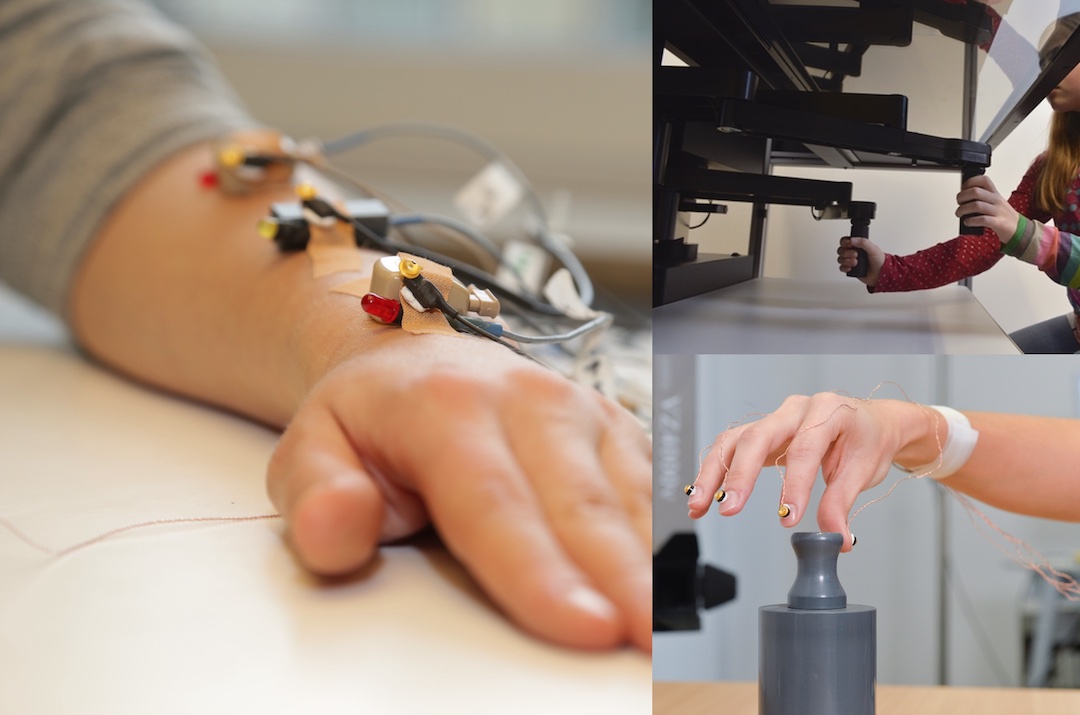
We record body movements to visual, auditory, and tactile stimulation with high time precision. A setup that can perturb and restrict hand movements allows testing cognitive influences on motor output via reflex-like responses and force measurement. Tracking and stimulation can be combined with EEG, TMS, eye tracking, and fMRI.
Semantic support and sex differences in toddlers’ spoken word recognition
Daniela Avila-Varela, Francesco Cabiddu, Anira Escrichs, Paula Luegi, João Veríssimo, Gary Jones
Journal of Experimental Child Psychology, January 2026
Elias Legat, Lucas Rainer, Florian Huber, Belinda Plattner, Andreas Kaiser, Pauline Schaffer, Helena Gampe, Kornelius Winds
Children, January 2026
Sarah Al Schameri, Belinda Plattner, Lucas Rainer, Helena Gampe, Bernhard Salcher, Katarzyna Grebosz-Haring, Marie-Christine Klettner, Kornelius Winds
Behavioral Sciences, January 2026
Christoph Bamberg, Jens Blechert, Julia Reichenberger
Stress and Health, January 2026
Respiration shapes the neural dynamics of successful remembering in humans
Esteban Bullón Tarrasó, Fabian Schwimmbeck, Marit Petzka, Tobias Staudigl, Bernhard P. Staresina, Thomas Schreiner
Journal of Neuroscience, January 2026
Mareike Röttger, Sercan Kahveci, Jens Blechert, Matthias Burkard Aulbach, Hannah van Alebeek
Appetite, January 2026
David Leistner, Fabio Richlan
European Journal of Investigation in Health, Psychology and Education, January 2026
Processing effects of L1/L2 from L3 in translation recognition paradigm: an exploratory ERP study
Karlygash Zhaksylykkyzy, Zhanar K. Ibrayeva, Almira M. Kustubayeva, Dietmar Roehm, Manzura Zholdassova
Frontiers in Psychology, January 2026
Marja Ilona Kinnunen, Matthias Burkard Aulbach, Piia Jallinoja, Ari Haukkala, Nelli Hankonen, Clarissa Bingham, Antti Uutela, Pilvikki Absetz
Journal of Health Psychology, January 2026
Find all scientific publications of CCNS members, browse their contributions in the media, grants, and third-party projects.